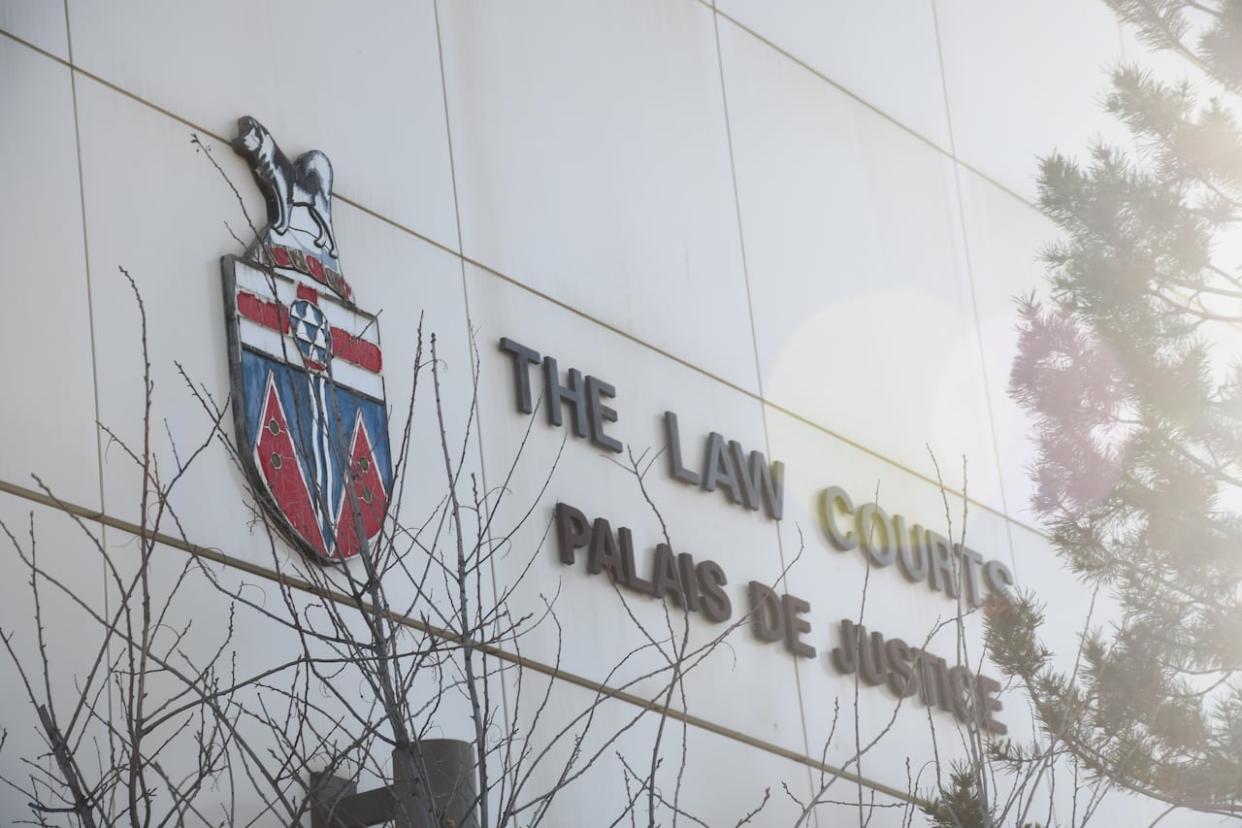Whitehorse man experienced 'manifold psychotic symptoms' leading up to Whistle Bend break-in, records say

A Whitehorse man found not criminally responsible after breaking into a Whistle Bend home was experiencing "manifold psychotic symptoms," his lawyer said, in the years and months leading up to and during the incident.
Combined with increasing drug use, Cole Sinclair's mental state at the time was "far from normal" by the time he smashed in the back-door window of a home with a shotgun, according to a recording of court proceedings and legal documents.
While CBC News previously reported that the now-24-year-old was found not criminally responsible, it was initially told key information in the case was not publicly accessible.
CBC News has since been granted access to an admissions of fact document and was also able to listen to an audio recording of the hearing where a judge made the finding, shedding more light on how the finding came to be.
According to information shared by defence lawyer Vincent Larochelle during the hearing, Sinclair, at the time of the offence, was suffering from and has since been diagnosed with a "psychotic disorder," the symptoms of which he'd experienced for years.
In particular, according to a psychiatric evaluation, he experienced "on-looker syndrome" and "passivity phenomenon," where "notions of reality break away" and someone feels like they're watching themselves act out things instead of being in control of their body.
Larochelle also said Sinclair was experiencing auditory hallucinations and paranoid delusions that further "degraded" his ability to know right from wrong and, combined with "growing drug use," resulted in his mental state being "far from normal by any reasonable characterization of that word" on April 12, 2023.
Neither the admissions of fact nor the hearing touch on why Sinclair left work that day to go up to Whistle Bend, with the document only stating that he had "no connection" with any of the people whose homes he went to.
Sinclair smashed the back-door window of one home, according to the document, and briefly went inside before leaving again. He also smashed the back-door window of the neighbouring home but did not enter it, and did not take or rifle through anything at either property.
The properties' occupants were not home at the time, though the occupant of the first home called police after receiving a notification from his doorbell camera.
The report triggered a massive police response, with officers temporarily shutting down some roads in the neighbourhood and doing patrols. The incident also drew concerns for public safety after the doorbell camera video circulated on Facebook, showing a person wearing a black hoodie, mask, sunglasses and yellow rubber gloves smashing at the door of a home with what appeared to be a shotgun.
'Great deal of shame'
Police arrested Sinclair about three weeks later, identifying him, according to the admissions, based on his "physical characteristics," his access to a "distinctive" work vehicle seen in a video recording on the same street at the same time that the first break-in occurred and his "unexplained absence" from work the afternoon of the incident.
Officers also searched Sinclair's apartment as part of the investigation and found clothing and an unloaded green-and-black Churchill model 12-gage shotgun similar to what was seen on the doorbell camera footage, as well as shoes that matched footprints found outside the affected homes.
Sinclair was charged with two counts of breaking-and-entering and one count each of using a firearm in the commission of an offence, carrying a weapon for the purpose of committing an offence and improper storage of a firearm. He was released on bail but violated his conditions by travelling to Vancouver without permission and later, failing to appear in court.
Larochelle filed an application on March 1 requesting that his client be found not criminally responsible on account of mental disorder.
Crown attorney Denise Payne, at the hearing, agreed that the court had enough information to make the finding. Payne added that the home owners, though they still have some fears about being home alone, had chosen not to file victim impact statements in the case and also didn't attend court because they didn't know Sinclair and didn't want him to know who they were or what they looked like.
Sinclair was given a chance to speak before the deputy territorial court judge Timothy Killeen made his finding. Sinclair said he was "truly sorry" to the homeowners for compromising their sense of security in their own homes.
"Looking back on my actions brings me a great deal of shame," he told the court.
"To the justice system and courts, thank you for catching me before I fell even further," Sinclair continued, and thanked his complex care team. "My mental health was deteriorating and I do not know where I would be if the RCMP had not brought me into custody."
Sinclair's case is now being handled by the Yukon Review Board, which handles the cases of people found not criminally responsible by the courts. He remains bound by a number of release conditions.

